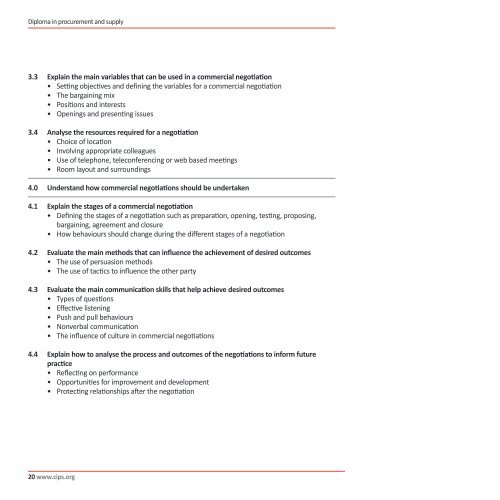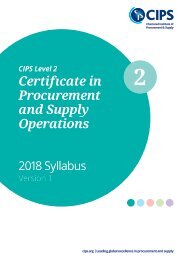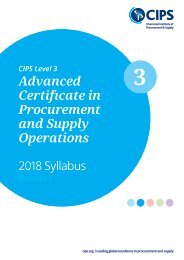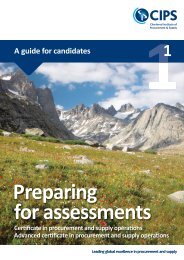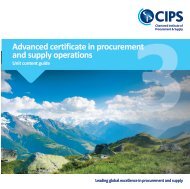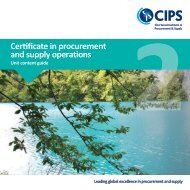CIPS_DipProcSupp_L4_UCG_24pp_210sq_0517_WEB
You also want an ePaper? Increase the reach of your titles
YUMPU automatically turns print PDFs into web optimized ePapers that Google loves.
Diploma in procurement and supply<br />
3.3 Explain the main variables that can be used in a commercial negotiation<br />
• Setting objectives and defining the variables for a commercial negotiation<br />
• The bargaining mix<br />
• Positions and interests<br />
• Openings and presenting issues<br />
3.4 Analyse the resources required for a negotiation<br />
• Choice of location<br />
• Involving appropriate colleagues<br />
• Use of telephone, teleconferencing or web based meetings<br />
• Room layout and surroundings<br />
4.0 Understand how commercial negotiations should be undertaken<br />
4.1 Explain the stages of a commercial negotiation<br />
• Defining the stages of a negotiation such as preparation, opening, testing, proposing,<br />
bargaining, agreement and closure<br />
• How behaviours should change during the different stages of a negotiation<br />
4.2 Evaluate the main methods that can influence the achievement of desired outcomes<br />
• The use of persuasion methods<br />
• The use of tactics to influence the other party<br />
4.3 Evaluate the main communication skills that help achieve desired outcomes<br />
• Types of questions<br />
• Effective listening<br />
• Push and pull behaviours<br />
• Nonverbal communication<br />
• The influence of culture in commercial negotiations<br />
4.4 Explain how to analyse the process and outcomes of the negotiations to inform future<br />
practice<br />
• Reflecting on performance<br />
• Opportunities for improvement and development<br />
• Protecting relationships after the negotiation<br />
20 www.cips.org


